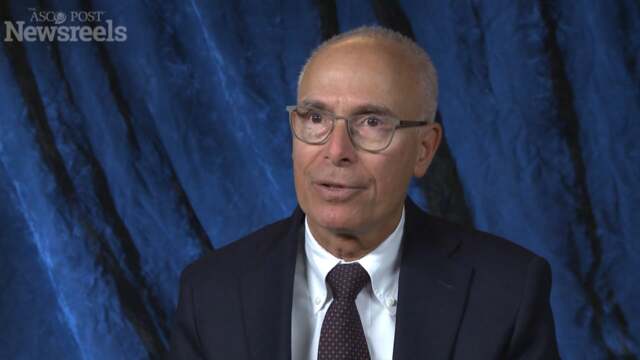Charles F. von Gunten, MD, PhD, on Referrals for Hospice Care: A Quality Improvement Approach
2016 Palliative Care in Oncology Symposium
Charles F. von Gunten, MD, PhD, of OhioHealth, discusses hospice care as a measure of quality, and findings that show medical oncologists doubled the median length of hospice service from 20 days to 40 days (Abstract 45).
J. Nicholas Dionne-Odom, PhD, of the University of Alabama at Birmingham, discusses the “hidden” health-care workforce of family caregivers and what clinicians can do to help ease the burden on families.
Joseph A. Greer, PhD, of Massachusetts General Hospital, discusses the development of a mobile application to address treatment adherence and symptoms (Abstract 104).
Stephen T. Sonis, DMD, DMSc, of Dana-Farber Cancer Institute, discusses the epidemiology, pathogenesis, and scope of oral complications of radiation therapy.
Eduardo Bruera, MD, of The University of Texas MD Anderson Cancer Center, discusses the need for outpatient palliative care programs to monitor and support these complex patients and their family members.
James F. Cleary, MD, of the University of Wisconsin Carbone Cancer Center, talks about the many reasons that 80% of the world’s population lacks access to opioids, the mainstay of cancer pain management.





